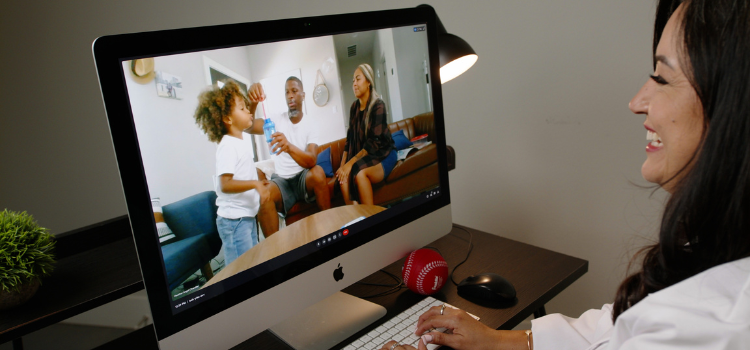As the autism rate in the US rises, families face challenges in receiving diagnoses, care and services. Virtual diagnosis is breaking down these barriers, allowing families to get help sooner, when it will make the greatest impact.
The prevalence of autism spectrum disorder reached 1 in every 36 8-year-olds in 2020, up from 1 in every 44 8-year-olds in 2018, and for the first time, rates were lower among white children than for other races, highlighting the importance of equitable access to screening and care.
The American Academy of Pediatrics recommends children undergo developmental screenings at 9, 18 and 30 months, as well as screenings for autism at 18 and 24 months. However, there are racial disparities and other significant barriers to accessing autism services such as diagnosis, behavioral therapy and community programs. There are long waitlists, insurance challenges, provider shortages and the Autism Diagnostic Observation Schedule, previously seen as the gold standard for in-person evaluations, has not been validated for telehealth. Additionally, these services are often unavailable in communities with high concentrations of Black, Hispanic and Native American families.
Although 85% of children with ASD had notations on early symptoms in their medical records, only 42% receive a comprehensive evaluation by age 3. These delays are more frequently seen in families with socioeconomic hardships and they can be problematic, as early diagnosis allows for timely initiation of support services and therapy, including individualized intervention, which has been shown to result in better outcomes.
But payers and providers are beginning to embrace a new option in the form of telehealth services, which gained popularity during the pandemic and is helping improve access to diagnoses and other services for children with autism.
New policies allow general pediatricians to evaluate and diagnose autism, and new evaluation tools, such as CARS-2(obs) and TELE-ASD-PEDS, are available to mitigate the limitations of virtual diagnosis. Such virtual autism evaluations have been pioneered by academic centers like Vanderbilt University and Boston Children’s Hospital and use the types of screening tools that parents would complete at doctors’ offices, as well as structured behavioral assessments based on gold standards. However, these institutions offer services regionally while telehealth can help make these services available more broadly. For example, As You Are, a provider of telehealth autism diagnostic evaluations currently offers services in 25 states and will be nationwide by the end of 2023.
Study findings show telemedicine-based ASD assessment for young children is accurate and clinically useful, particularly benefitting underserved populations. Meanwhile, providers have noted that telemedicine-based autism diagnoses can reduce the travel burden for families and broaden access in areas with fewer resources. They report feeling comfortable with coaching parents through assessments and said seeing children interact with familiar people in their home environment helped inform diagnoses. Children, in turn, feel more comfortable in their own home environment, which can lead to more naturalistic behaviors during the evaluation.
There are some limitations to virtual assessments; for example, in-person assessments may be more appropriate for complex cases with other mental health comorbidities. These cases should be referred out. For more standard cases, plans and providers must be able to share resources and recommendations with the families of children with autism, especially after a new diagnosis. This should include an individualized care plan with support from a care coordinator to help families navigate available services.
By breaking down the barriers to timely diagnosis and care, payers and providers can give the best care at the highest impact to children with autism and their families.
As You Are is managed and operated by Quadrant Biosciences Inc. and its affiliates. As You Are provides telehealth autism diagnostic evaluations to dramatically increase access to early autism diagnostic services and provide families therapeutic resources and support to help their children flourish. As You Are is headquartered in San Antonio, Texas and offers services to families in 25 states with plans to expand nationally by the end of 2023. To learn more, visit www.asyouare.com.
